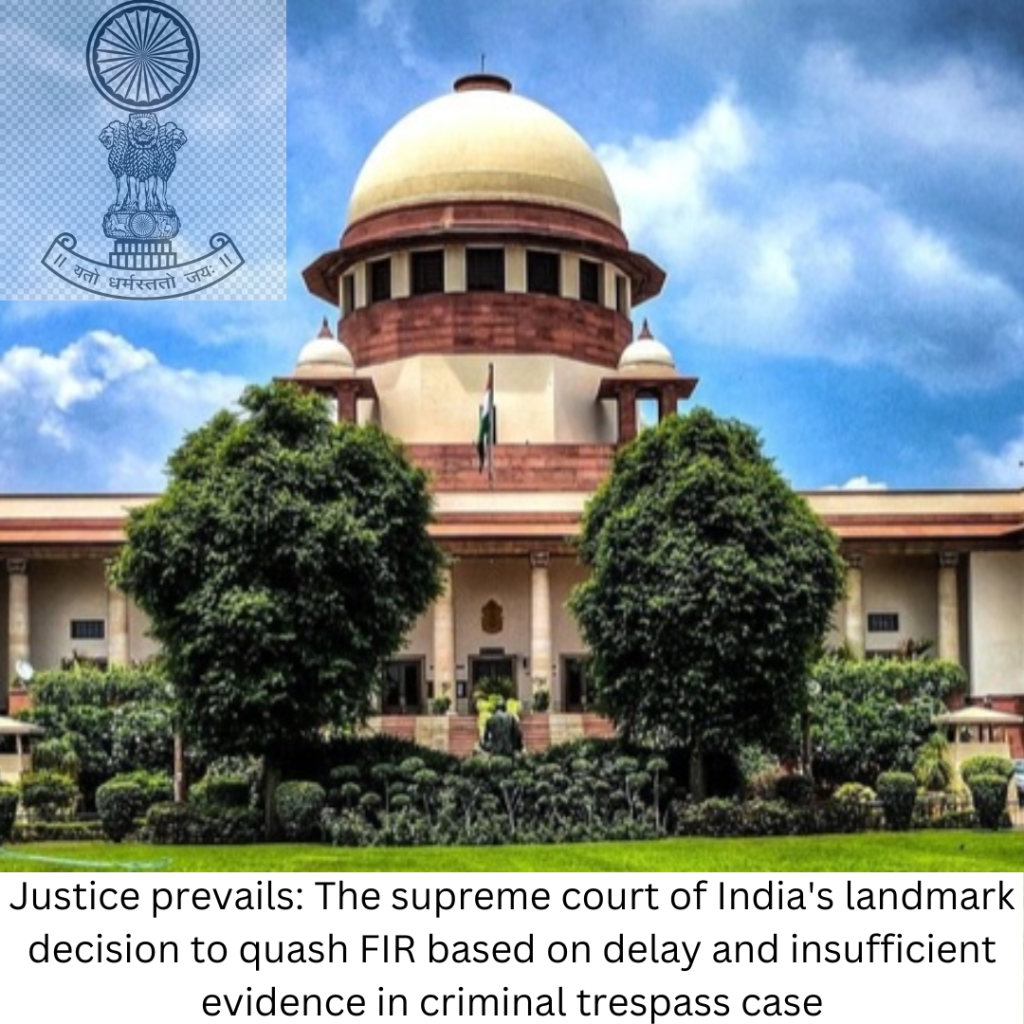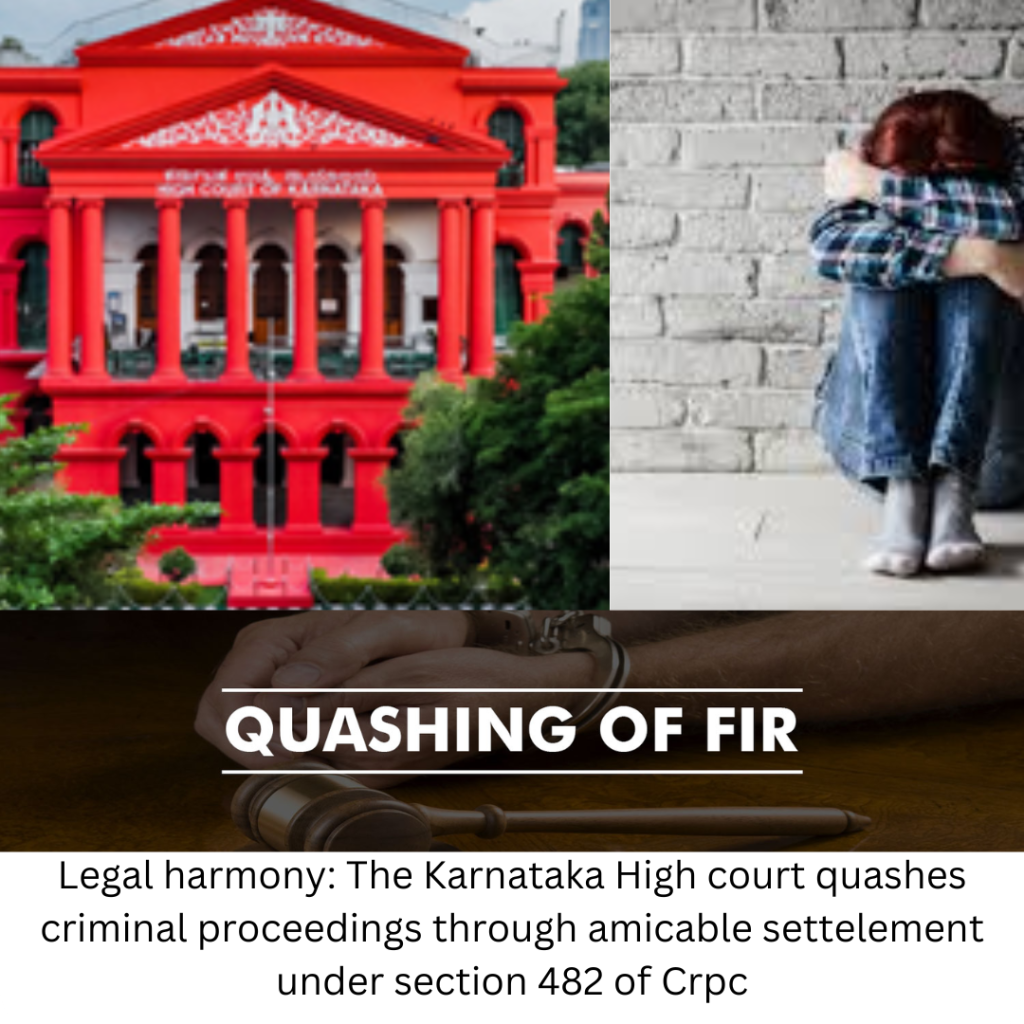Gujarat HC Upholds Will Excluding Son from Inheritance Due to Lack of Care
Case Name: Sonaji Raghal Chaudhari v. Akha Diwala Chaudhari thr’heirs
Case Number: R/Second Appeal No. 222 of 1982
Dated On: July 2, 2021
Quorum: Honorable Dr. Justice A. P. Thaker
FACTS OF THE CASE
The legal dispute involves Akha Diwala, the original plaintiff and son of the deceased, Diwala Gausa, and the defendant, who is the grandson of the deceased. The properties under dispute are whether they are self-acquired by the deceased Diwala Gausa or ancestral. Both the trial court and the first appellate court determined that these properties were self-acquired by Diwala Gausa. Akha Diwala claimed that the properties were ancestral, acquired using proceeds from the sale of joint family properties. However, this claim was not supported by evidence. The deceased allegedly executed a Will on January 11, 1975, in favor of his grandson, the defendant. The trial court found the Will valid, given that the properties were self-acquired. The first appellate court doubted the Will’s authenticity due to several inconsistencies: The Will lacked a clear description of the properties. It falsely stated the deceased had only one son when he had two. Witnesses gave conflicting statements about the thumb impression and drafting location of the Will. The scribe of the Will was not examined. Discrepancies existed in witness testimonies about the stamp purchase for the Will. The deceased’s paralysis before death raised questions about his ability to execute the Will. The Will was registered after the deceased’s death, adding to the suspicion.
ISSUES
- Whether the properties in question were self-acquired by the deceased Diwala Gausa or ancestral. This was crucial to determine the rightful ownership and the validity of the claims made by the plaintiff.
- Whether the Will allegedly executed by Diwala Gausa on January 11, 1975, in favor of his grandson, the defendant, was genuine and valid. The authenticity of the Will was pivotal as it directly influenced the distribution of the properties.
- Whether the properties were acquired using the proceeds from the sale of joint family properties, as claimed by the plaintiff. This issue was significant in establishing whether the properties were part of the joint family estate or the self-acquired assets of Diwala Gausa.
LEGAL PROVISIONS
Hindu Succession Act, 1956:
- This Act governs the inheritance and succession of property among Hindus. Key provisions relevant to the case include:
- Section 8: General rules of succession in the case of males.
- Section 9: Order of succession among heirs in the Schedule.
- Section 10: Distribution of property among heirs in class I of the Schedule.
- Section 30: Testamentary succession, i.e., the power to dispose of property by will.
Hindu Law on Joint Family Property:
- Under traditional Hindu law, a distinction is made between ancestral property and self-acquired property.
- Ancestral Property: Property inherited up to four generations of male lineage, which is not divided among them.
- Self-Acquired Property: Property acquired by an individual through his own efforts and not inherited from ancestors.
The Indian Succession Act, 1925:
- Though primarily applicable to non-Hindus, some provisions might be referred to for general principles regarding wills and testaments.
- Section 59: Persons capable of making wills.
- Section 61: Will obtained by fraud, coercion, or importunity.
Indian Evidence Act, 1872:
- Relevant sections would include those dealing with the burden of proof, genuineness of documents, and oral evidence.
- Section 67: Proof of signature and handwriting of a person alleged to have signed or written a document produced.
- Section 68: Proof of execution of document required by law to be attested.
- Section 101-104: General rules about the burden of proof
CONTENTIONS OF THE APPELLANT
The appellant contended that the will in question was legally valid and binding. They argued that the will was executed by Ganpat Hivarale (the deceased) in a sound state of mind and without any undue influence or coercion. The appellant maintained that the will fulfilled all legal requirements for its execution and attestation, and hence, it should be upheld by the court. The appellant asserted that the will was genuine and reflected the true intentions of the deceased. They provided evidence and witnesses to support the authenticity of the signatures and the circumstances under which the will was made. The appellant claimed that the deceased had made the will voluntarily and with full knowledge of its contents, thus challenging any allegations of fraud or forgery. The appellant argued that, according to the will, they were the rightful heir to the property in question. They contended that the distribution of the property as specified in the will was in accordance with the deceased’s wishes and should be respected. The appellant emphasized that the will clearly outlined the intended beneficiaries and their respective shares, thereby establishing their claim to the inheritance. The appellant argued that the property in question was self-acquired by the deceased and not ancestral property. They claimed that the deceased had the full legal right to dispose of the property as he wished through his will. By asserting the self-acquired nature of the property, the appellant aimed to refute any claims by the respondents that the property should be subject to the rules of coparcenary or joint family property under Hindu law.
CONTENTIONS OF THE RESPONDENT
The respondents contended that the will presented by the appellant was forged and fraudulent. They argued that the deceased, Ganpat Hivarale, did not execute the will and that it was fabricated to deprive the rightful heirs of their inheritance. The respondents provided evidence and witness testimony to support their claim that the signatures on the will were not genuine and that the document was created after the deceased’s death. The respondents questioned the mental state of Ganpat Hivarale at the time the will was allegedly executed. They contended that the deceased was not in a sound state of mind due to illness and old age, which rendered him incapable of making a valid and conscious decision regarding the disposition of his property. The respondents argued that the will could not be considered valid as the deceased lacked the mental capacity to understand the implications of the document. The respondents alleged that the appellant exerted undue influence and coercion over the deceased to create the will in their favor. They claimed that the appellant took advantage of the deceased’s vulnerable state to manipulate the contents of the will. The respondents argued that the will was not a true reflection of the deceased’s intentions but rather a result of pressure and influence exerted by the appellant. The respondents contended that the property in question was not self-acquired by the deceased but was instead ancestral property. They argued that as ancestral property, it should be subject to the rules of coparcenary and joint family property under Hindu law. According to these rules, all legal heirs would have a right to a share of the property, and the deceased could not unilaterally dispose of it through a will.
COURT’S ANALYSIS AND JUDGEMENT
The court closely examined the allegations of forgery and fraud raised by the respondents. It reviewed the evidence, including handwriting expert testimony and witness statements. The court found inconsistencies in the signatures on the will compared to the known signatures of the deceased. The handwriting expert’s report indicated significant discrepancies, suggesting that the will might not have been signed by the deceased. This cast doubt on the document’s authenticity.
The court assessed the evidence regarding the mental state of Ganpat Hivarale at the time the will was purportedly executed. Medical records and witness testimonies indicated that the deceased was suffering from severe illness and was in a weakened mental and physical state. The court concluded that the deceased lacked the requisite mental capacity to understand and execute the will. Consequently, the will could not be considered valid under the law due to the deceased’s compromised mental condition.
The court considered the respondents’ allegations of undue influence and coercion. It found credible evidence that the appellant had a significant opportunity to exert influence over the deceased, given their close relationship and the deceased’s vulnerable state. Witnesses testified that the appellant had been managing the deceased’s affairs and had isolated him from other family members. The court determined that the will was likely a result of undue influence, further invalidating it as a true expression of the deceased’s wishes.
The court also addressed the nature of the property in dispute. It concluded that the property was indeed ancestral, as it had been passed down through generations within the family. According to Hindu law, such property is subject to the principles of coparcenary and joint family property. This meant that all legal heirs had a right to a share of the property, and the deceased could not dispose of it entirely through a will without the consent of the other coparceners.
Based on these findings, the court ruled in favor of the respondents. It declared the will presented by the appellant as invalid due to forgery, lack of mental capacity, and undue influence. The court held that the property in question was ancestral and should be divided among the legal heirs according to the principles of coparcenary and joint family property under Hindu law. The court’s judgment ensured that the rightful heirs received their fair share of the property, upholding the traditional inheritance laws applicable to ancestral property.
“PRIME LEGAL is a full-service law firm that has won a National Award and has more than 20 years of experience in an array of sectors and practice areas. Prime legal fall into a category of best law firm, best lawyer, best family lawyer, best divorce lawyer, best divorce law firm, best criminal lawyer, best criminal law firm, best consumer lawyer, best civil lawyer.”
Judgement Reviewed by- Shruti Gattani





